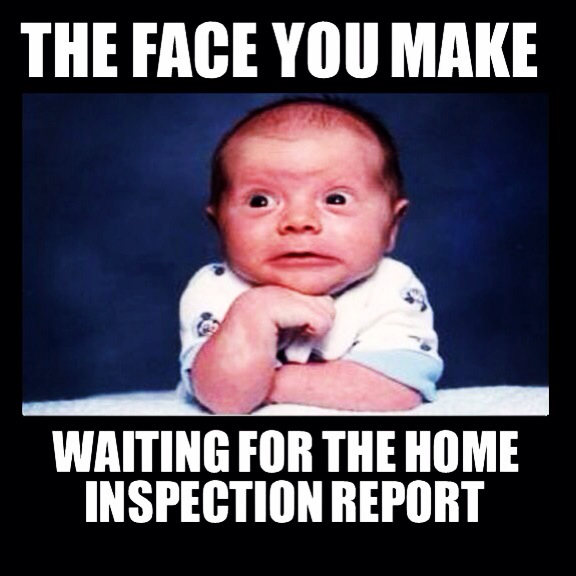 “By every measure, Tracy Shaffer is the dream broker, the best of the best. As it happened, at the time we were selling our town home, Tracy was going through a very difficult period in her personal life, but was able to put her needs aside to support ours and those of the buyer, representing both both sides of the table with intelligence and grace. Who could ask for anything (or anyone) more?” -Susan Viebrock, Telluride, CO
“By every measure, Tracy Shaffer is the dream broker, the best of the best. As it happened, at the time we were selling our town home, Tracy was going through a very difficult period in her personal life, but was able to put her needs aside to support ours and those of the buyer, representing both both sides of the table with intelligence and grace. Who could ask for anything (or anyone) more?” -Susan Viebrock, Telluride, CO
Tag Archive for: Denver Realtors
Capitol Hill Condo
 “Tracy is the best!! She sold our 1 bedroom condo in a Historic Register building in Capitol Hill in Denver. Unlike many realtors who are just looking to make a sale and move on to the next, Tracy really cares about her clients and their financial situation. She actually convinced us not to sell the first time we contacted her because the market was in the pits and our condo was worth less than 1/2 what we paid for it. By following her advice and waiting a few years, we ended up making money on the condo when it sold for OVER the asking price. She was incredibly patient with all of our concerns and questions, and knows more about the market than anyone. Also worth mentioning that we were out of state for the whole process, so she handled EVERYTHING; renovations, cleaning, staging, pricing, showing, you name it! She made this very stressful situation much less so, and we can’t imagine using anyone else.” – Keith Orell
“Tracy is the best!! She sold our 1 bedroom condo in a Historic Register building in Capitol Hill in Denver. Unlike many realtors who are just looking to make a sale and move on to the next, Tracy really cares about her clients and their financial situation. She actually convinced us not to sell the first time we contacted her because the market was in the pits and our condo was worth less than 1/2 what we paid for it. By following her advice and waiting a few years, we ended up making money on the condo when it sold for OVER the asking price. She was incredibly patient with all of our concerns and questions, and knows more about the market than anyone. Also worth mentioning that we were out of state for the whole process, so she handled EVERYTHING; renovations, cleaning, staging, pricing, showing, you name it! She made this very stressful situation much less so, and we can’t imagine using anyone else.” – Keith Orell
 As a Realtor, out on the town I’m always asked, “How’s the market?” It’s the follow-up question where it really gets interesting.
As a Realtor, out on the town I’m always asked, “How’s the market?” It’s the follow-up question where it really gets interesting.
The last seven years have seen a surge in the metro Denver real estate market as record numbers of buyers look for homes, which in turn has caused prices to jump. The strength in the market has been so pronounced that people are beginning to ask “Are we in another bubble?” It’s a reasonable question given the horrendous experience of the housing crisis, and while no one can ever predict the future with certainty, I see no evidence that we’re heading for a dramatic downturn in the real estate market any time soon. Here’s why:
1. Even with the continued increase in metro Denver home prices (up another 8 percent in the past 12 months) the average inflation adjusted PITI (Principle, Interest, Taxes, and Insurance) payment made in metro Denver is actually BELOW our 35-year average. This means that while prices have steadily risen, buyers are still able to afford their monthly payments, providing plenty of room for continued home price increases.
2. The number of transactions relative to the population of metro Denver is just about at the 25-year average. At the peak of the bubble in 2006 the number of home sales was about 20 percent above the historical average. When we see the number of closed transactions well above our historical average that’s an indication of an overheated market, as it was in 2006. The number of closed home sales is actually DOWN 12 percent in the past year due to the low inventory. No sign of a bubble here.
3. In 2006, many of the deals were closed with low or no documentation mortgages (“liar loans” or “no doc loans”). Today, mortgage underwriting standards are among the toughest they’ve been in decades. This prevents unqualified buyers from purchasing property, which mitigates the chance of the market overheating (fewer buyers means fewer purchases means less chance of the market frothing into bubble territory like it did in the past).
4. Because of relatively high home affordability it’s a lot cheaper to buy than rent in our market. This would not be true in a bubble. For housing price affordability to return to the average level that we saw in the years between 2000 and 2004 either home prices would have to increase an additional 35 percent or interest rates rise to 6.6 percent. Neither is going to happen any time soon.
5. The imbalance between buyers and sellers we’ve seen recently in our housing market (too many buyers/not enough homes for sale) is due to a lack of inventory, not illogical/unrealistic/unsustainable demand from buyers. “Much of the price increases we are seeing are the result of rising demand among investors and homebuyers for a still-limited supply of homes for sale,” said Anand Nallathambi, president and CEO of CoreLogic. This imbalance is a logical correction from years past when we had too FEW buyers in the market. This is how markets are supposed to work, always regressing to the mean over time.
6. Rising mortgage rates will help to temper the possibility of a bubble as well (they are still near 50-year lows but are expected to rise someday). “History shows that a rapid rise in interest rates tends to have little correlation with home prices. Rather, rising rates are more likely to contribute to a decrease in home purchase volume,” wrote Mark Palim in a Fannie Mae commentary. So the positive side of a rise in mortgage rates is that it will reduce the number of buyers and therefore lower the chance the market will rise out of control and end up collapsing in a bubble.
Click on the monthly market snapshot, the inventory of metro Denver homes for sale continues to fall; it’s down another 5 percent from a year ago. Since the inventory is still extremely low (about 5,520 homes on the market where about 18,000 is a balanced market) I am all but certain the demand will still exceed the supply for the next several years and prices will continue to rise for the foreseeable future. No bubble on the horizon yet… Stay tuned!
![June 16 - Market Snapshot [5608]](https://tracyshaffer.com/wp-content/uploads/2016/06/June-16-Market-Snapshot-5608.jpg)
Buyers
If you agree that we’re not headed for a bubble any time soon what does this mean for you as a buyer? I think it means you should consider buying a home IF it makes sense for you to do so. Are you running out of room at home? Expecting a baby? Have an awful commute? Want to live in a nicer neighborhood? Looking for a better school district for the kids? There are a lot of great reasons to move. But don’t buy a home to speculate on the market; buy because it’s time for a new home. Call me anytime to discuss what your options are and how I can help you find a wonderful place to live.
Sellers
We have been discussing the incredible strength in our housing market. If you’re looking to sell your home this should be very welcoming news! The inventory of homes on the market is at an all-time low and prices are up. Call me and I’ll be happy to run a complimentary Comparative Market Analysis on your home to let you know what it might be worth. It’s great information and costs you nothing.
Investors
The most recent “Metro Denver Area Residential Rent and Vacancy Survey” shows the great news continues for landlords. According to the report:
“The overall vacancy rate for the metro area for the fourth quarter of 2015 was 3.1 compared to 3.9 percent for the previous quarter, and 1.5 percent for the fourth quarter of 2014. It was 2.0 percent in the fourth quarter of 2013, 1.7 percent for the fourth quarter of 2012, 2.1 percent for the fourth quarter of 2011, 2.0 for the fourth quarter of 2010, 5.5 for the fourth quarter of 2009, and 4.9 percent for the fourth quarter of 2008.”
In the U.S., more millionaires owe their wealth to real estate investments than any other single source of income. Today’s market could not be better for long-term buy –and-hold investors. Call me to find out more.
Vacancy Rates
Adams 3.9%
Arapahoe 4.0%
Boulder/Broomfield 2.7%
Denver 3.1%
Douglas 1.7%
Jefferson 2.6%

From Page 4
4. The Investor Real Estate Market: Denver is still a great place to invest in real estate. The fix and flip market is strong for those who can find underpriced homes to buy and repair. They’re out there but it takes tools, patience, and work to find them. Once you get one fixed up, selling is the easy part because of the lack of competing inventory. The buy and hold market will continue to be extremely profitable for long-term investors. Interest rates and vacancy rates are still near record lows and rents continue to rise – a record 10.8 percent per year the past three years. It’s not difficult to buy a rental property in today’s environment and put it on the path to be paid off in 12-15 years. Just think how your life would change if you owned a couple of rental properties free and clear! For building long-term wealth it’s tough to compete with rental property ownership. That’s the one thing that will never change. CLICK ON MAP TO ENLARGE

Need more info? Boy you are a real estate geek! (and I love it) CLICK LINK for the metrics from Matrix. 15-0705 DSF Data CITY – Copy
If you would like a personal real estate consultation, have any questions about the market, your home’s value or need more specific information about your neighborhood please give me a call.
Until next month… use your sunscreen!
I object! Often the process of buying or selling a home is so emotional, so stressful, that our every fear is stirred up. That’s why when buying or selling a home, the home inspection is critical. Your home inspection can put you at ease, whether you are purchasing a home you want to feel good about or selling a home you want to feel is safe for the new owner. The home inspection and the resulting INSPECTION OBJECTION and RESOLUTION can be fine points of the negotiation. Of course, the sellers don’t want to reduce their proceeds and the buyers don’t want to take on the extra expense of repairs. So, where’s the middle ground?

Let’s start with a few basic questions and let the answers guide us to our home inspection answers.
To the Sellers:
1. How motivated are you to sell your home at this time, with these buyers, under the terms of the contract?
2. What is your goal in selling your house? And what effect does this sale have on your life right now? On your future?
3. If I could tell you that the goal you want in question #2 would cost you X amount of dollars, would that seem like a fair price?
4. Is the cost of the repair(s) more or less than the cost of another month, maybe two, of your mortgage payment?
To the Buyers:
1. How would you feel if you let this house go?
2. Are the repairs immediate or can they be reasonably deferred?
3. How many things are you asking the Sellers to repair or credit for? I mean, it’s one thing to ask them to replace the faulty old Zinsco electrical panel or install radon mitigation, quite another to ask for a cracked plastic outlet cover to be changed.
4. Do you feel you are safe in the house without the repairs?
It’s that last question that is the most important. Are the requested repairs, replacements or credit for such, necessary to provide or protect the health and safety of the home buyer? This is where I draw the line. If the home inspection reveals something that would cause any reasonable buyer to feel unsafe they might need to walk away from the transaction. Even if you, Mr. and Mrs. Seller have lived with it for 20 years and nothing has happened, you might as well buck up and agree to make the repairs. You’ll have to disclose the issue to the next buyer if you lose this contract now that you know about it, so the problem isn’t going away.
If the buyers have reasonable expectations of the home’s condition based on its age and understand the responsibilities of home ownership, then health & safety should be your guide. That “honey-do list” the Inspector gave you? That would be yours, not the sellers, but those hot wires or the recalled electrical panel? Definitely calls for the experts. When both parties move away from all emotional or economic considerations and apply fair and equitable logic, the questions answer themselves. Logic, who knew?
Now… back to my clients and that electrical panel.
 Are you a first-time homebuyer but missed that big tax credit? Are you tired of paying rent or is your rent being raised to astronomical limits? So let me ask you this… If you thought you could get a good deal and a $2000 tax credit, would you like to own a house in Denver? Good news.
Are you a first-time homebuyer but missed that big tax credit? Are you tired of paying rent or is your rent being raised to astronomical limits? So let me ask you this… If you thought you could get a good deal and a $2000 tax credit, would you like to own a house in Denver? Good news.
The City and County of Denver announced a new Mortgage Credit Certificate program that enables qualified borrowers to receive an annual federal income tax credit equal to 30 percent of the yearly interest paid on their mortgage loan, up to $2,000 annually, the city announced Tuesday.
“For many families, home ownership is a primary method of asset building and saving for the future,” says Denver Mayor Michael Hancock. “We’re providing a financial boost to individuals and families while increasing home ownership opportunities and the overall strength and vitality of Denver neighborhoods.” Lenders can use the estimated amount of the credit on a monthly basis as additional income to help a potential borrower qualify for a loan, the city said.
There are stipulations to the program. To qualify, borrowers must purchase a residence in the City and County of Denver and income restrictions apply ($79,300 for one or two persons and $91,195 for three or more). The maximum allowable purchase price for a home is $370,252, although higher income and purchase price limits are available in targeted areas. Participants cannot have owned a home in the past three years, except in targeted areas and for qualifying veterans.
Only certain lenders are approved to participate in Denver’s Mortgage Credit Certificate program and Paul Orrell at Megastar Financial, one of my favorites, is among them. Click here if you’d like more information about the Denver Mortgage Credit Certificate program, then shoot me an email. I’d be glad to go over your options.






